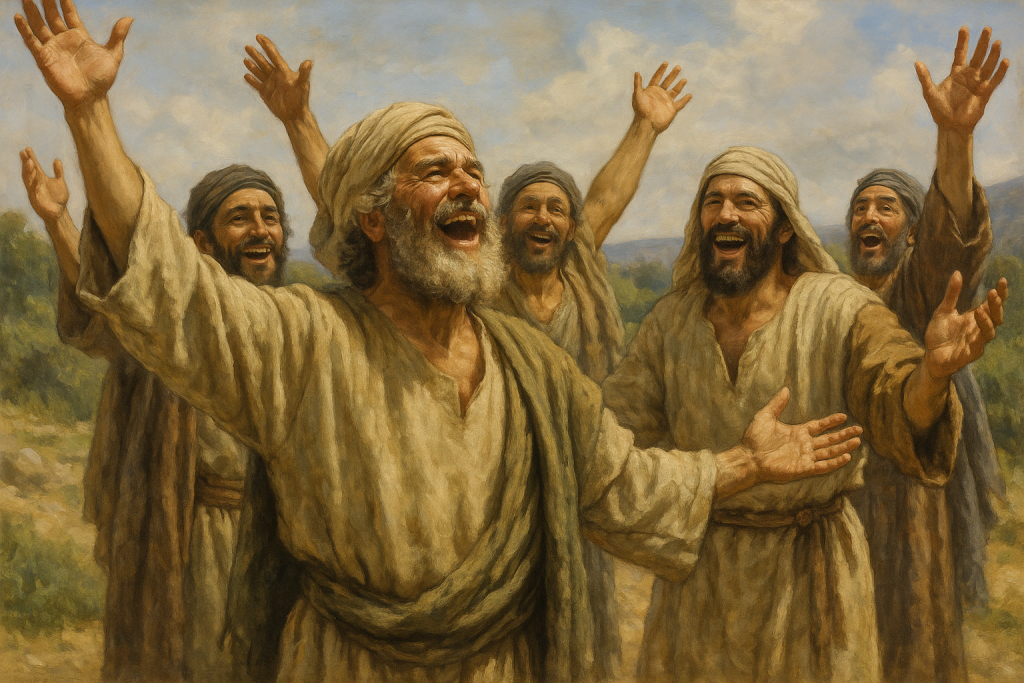
(Read St. Luke 10:17–24)
The disciples return rejoicing, filled with holy awe at the authority granted to them through the Name of Christ. Even the demons, they declare, are subject to His power. However, the Lord gently redirects their joy. He acknowledges the victory they have witnessed — the fall of Satan, swift and irrevocable as lightning — but reminds them that true rejoicing must rest not so much in triumph over evil, but in the eternal security of belonging to God. “Rejoice that your names are written in heaven.” This is the joy that endures when miracles fade and earthly labours cease.
The Lord’s words teach us to discern the nature of spiritual joy. Power and success, even when exercised in the service of the Kingdom, are never the foundation of our peace. The essence of Christian joy is not found in what we accomplish for God, but in what God has done for us. He has inscribed our names in the Book of Life; He has claimed us as His own. The disciples’ authority is real, but their salvation is the greater miracle — the restoration of communion between creature and Creator.
Christ then lifts His eyes to heaven in thanksgiving, rejoicing in the Spirit. This moment reveals the deep mystery of divine humility. The wisdom of God is hidden from the proud and revealed to those who approach Him in simplicity of heart. The babes, the unlearned, the poor in spirit—these are the ones to whom divine mysteries are unveiled. It is a reminder to the Church that knowledge of God is never attained through intellect alone, but through purity, obedience, and the quiet light of prayer. The proper path to illumination is the way of lowliness, for the grace of the Holy Spirit dwells in the humble heart.
Our Lord’s prayer discloses the intimate relationship between Father and Son—a communion so complete that only the Son truly knows the Father, and only through the Son may we come to know Him. This is a revelation that transforms the soul. Through Christ, the believer is invited into the mystery of divine life itself. It is in the liturgical and sacramental life of the Church that this revelation continues, as the faithful encounter the living God in the Eucharist, where heaven and earth meet in holy unity.
Our Lord blesses His disciples for what they have been permitted to witness. “Blessed are the eyes which see the things that ye see.” The prophets and kings of old longed for this revelation—to see the Word made flesh, to hear the voice of the Son. What they foresaw in shadow, the disciples beheld in light. For us, every Divine Liturgy renews this same vision—the presence of Christ among His people, the Kingdom of God breaking into the world. We, too, are blessed if our eyes are opened to perceive Him in the breaking of the Bread, in the lives of the saints, and in the quiet operations of grace.
We are called to rejoice not in temporal victories, but in the unshakeable promise of eternal life; to seek wisdom not in self-assurance, but in childlike trust; and to see with the eyes of faith the mysteries which the world cannot perceive. Such is the joy that belongs to those whose names are written in heaven — the joy of knowing Christ, the Son of the Living God, who reveals the Father to all who love Him in truth.
May God bless you +
Fr. Charles
4 October 2025

Comments are closed.